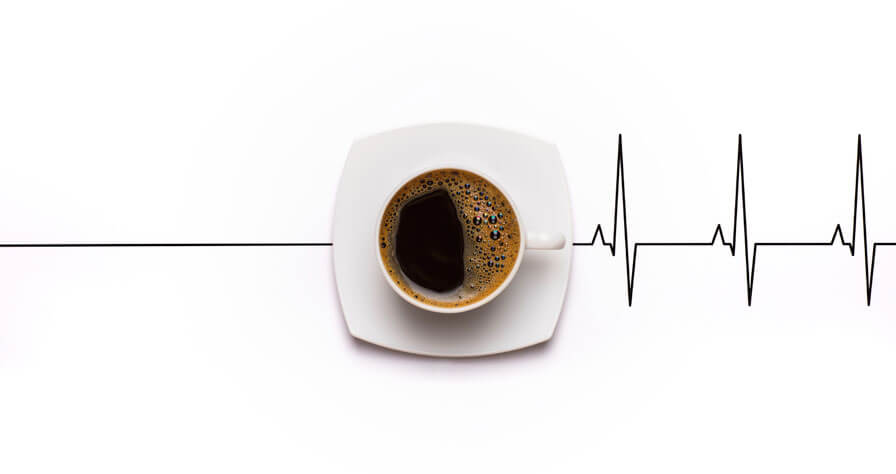How to Manage Caffeine Withdrawal

American adults consume an average of 200 mg of caffeine daily (the equivalent of two five-ounce cups of coffee), and many people can tolerate twice that amount with no ill effects.
If you enjoy beverages containing caffeine, you know it's effective in increasing alertness and reducing fatigue. That's because it's a central nervous system stimulant that affects nerve activity in the brain.
If you consume caffeine regularly, you probably also understand that your body has become used to it. And you know that if you cut back on your intake, you'll experience caffeine withdrawal symptoms.
This article identifies those symptoms and provides recommendations for coping as your body adjusts.
9 Caffeine Withdrawal Symptoms
Rapidly cutting your caffeine intake can affect your body in several ways. Nine of the most common caffeine withdrawal symptoms are:
- Headache. This is often the first symptom people notice when reducing their caffeine consumption. Caffeine causes blood vessels in the brain to constrict, slowing blood flow. Experts believe that if you stop consuming it, your blood vessels expand, blood flow accelerates, and the added pressure gives you a caffeine withdrawal headache.
- Anxiety. People who abruptly stop consuming caffeine may experience anxiety. It's thought there are physiological and psychological reasons for this reaction. Anxiety can be particularly intense if your caffeine is accompanied by sugar (in soda, added to coffee, etc.).
- Sleepiness. Caffeine provides an energy boost by blocking receptors for a neurotransmitter called adenosine, which makes you drowsy. If you stop consuming caffeine, those receptors are no longer blocked, and you feel the effects of adenosine.
- Irritability. Caffeine has a positive impact on energy levels and mood. You may feel grumpy if you cut back or even delay your first cup of the day.
- Nausea. Some people experience an upset stomach when they reduce their caffeine consumption.
- Tremors. Consuming caffeine can cause tremors in people who aren't used to it or get more than usual. But it can have the same effect on people who enjoy coffee, soda, or energy drinks regularly and then curtail or stop their consumption.
- Trouble concentrating. Caffeine increases excitatory brain chemicals like adrenaline (epinephrine), norepinephrine, and dopamine. Cutting back can make it difficult to focus.
- Depressed mood. Caffeine decreases drowsiness and increases alertness and feelings of well-being. Abstaining has the opposite effect, which can leave you sad or depressed.
- Low energy. If you rely on caffeine to boost your energy, the lack of it in your system can cause you to feel lethargic.
Tips for Reducing or Avoiding Caffeine Withdrawal Symptoms
People considering reducing their caffeine intake may have questions like:
- How much caffeine causes withdrawal symptoms?
- How long does it take to "detox" from caffeine?
- What is the fastest way to detox from caffeine?
- Do you feel better after quitting caffeine?
- What happens after caffeine withdrawal is over?
Every person's experience with quitting caffeine and going through withdrawal is unique. So, things like the quantity of caffeine that can lead to withdrawal symptoms, how you feel after withdrawal, etc., vary.
However, in any case, caffeine withdrawal symptoms generally begin between 12 and 24 hours after the reduction and can last up to nine days. Consequently, it's helpful to know how to lessen or prevent them. These actions can help:
- Reduce your intake slowly. Allowing your body to adapt to a gradual change can minimize the intensity of your symptoms. For example, some coffee drinkers will start by mixing caffeinated and decaffeinated coffee.
- Stay hydrated. Dehydration can cause headaches and fatigue, so drinking plenty of water as you cut back on caffeine is essential.
- Bump up your energy level in other ways. You can combat low energy by eating nutrient-dense foods and getting regular exercise.
- Practice stress-reduction techniques. Reducing your caffeine intake can be stressful. Deep breathing, prayer, meditation, and other relaxation techniques can counteract stress.
- Get adequate sleep. Being well-rested in the morning increases your energy level and decreases daytime drowsiness.
- Take pain relievers as directed. Using over-the-counter medication can help reduce headache pain.
- Patience is crucial when quitting caffeine. Don't be fooled by sources touting "the fastest caffeine detox methods."
Rather than focusing on how long it takes to "feel normal" after quitting caffeine, be mindful that your body will adjust to a caffeine reduction as quickly as possible. Being anxious for the withdrawal process to be over won't help you reach your goal any faster and may intensify your discomfort.
Also, while withdrawal symptoms are common, you should talk with your doctor if yours are extended or extreme.
For example, people sometimes ask, "Can you get a headache from caffeine withdrawal for two weeks?" That could happen, but something else may be responsible for a headache of that duration, so it's a good idea to contact your physician. Similarly, a caffeine headache is painful, but it shouldn't be an intense, debilitating pain.
Get Help with Caffeine Withdrawal from Baptist Health
Is it safe to cut back on your caffeine intake? Yes, especially if you do so slowly. And while moderate caffeine consumption is safe, many people report that they feel better after going through caffeine withdrawal and permanently eliminating or reducing caffeine.
If you're concerned about caffeine withdrawal or your post-withdrawal well-being, your Baptist Health physician is an excellent source of information. They understand caffeine withdrawal headaches and the desire for relief from them and other symptoms.
Your doctor can explain the typical caffeine detox duration and timeline. They can also provide tips for minimizing your symptoms and may encourage you to talk with a nutritionist.
If you don't have a Baptist Health physician, you can find one using our online provider search tool.



